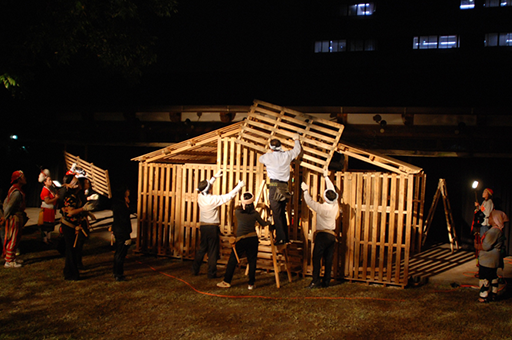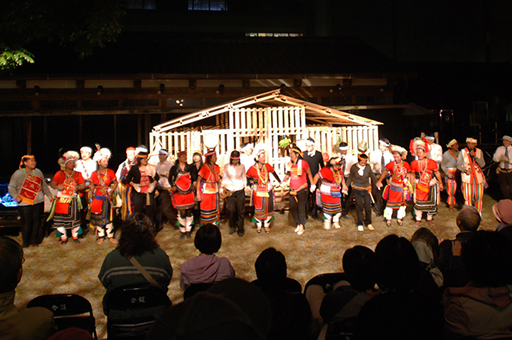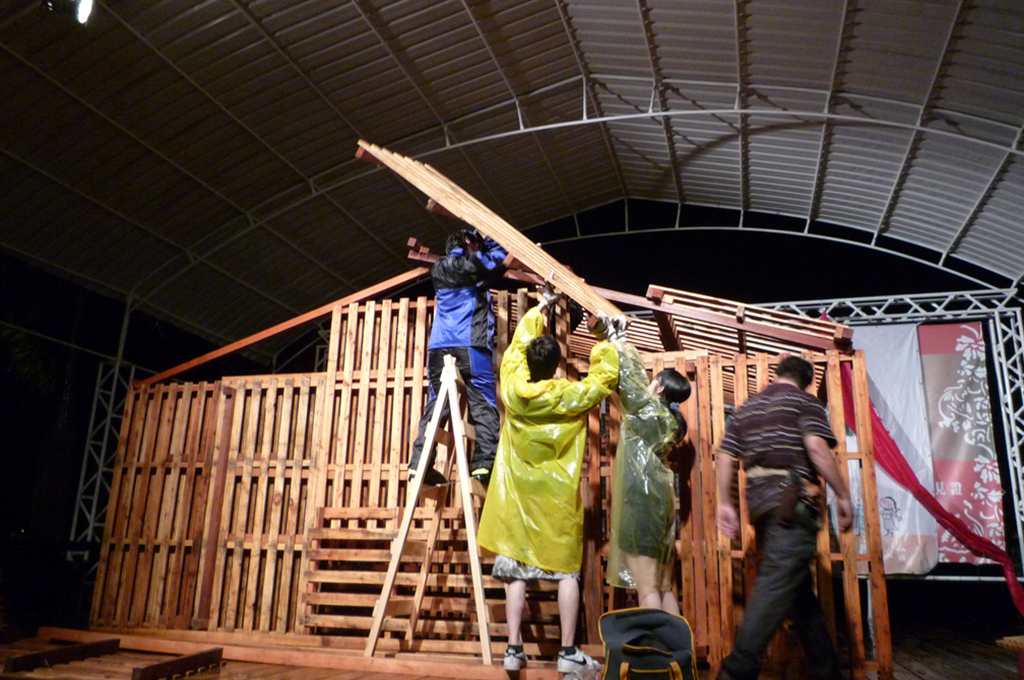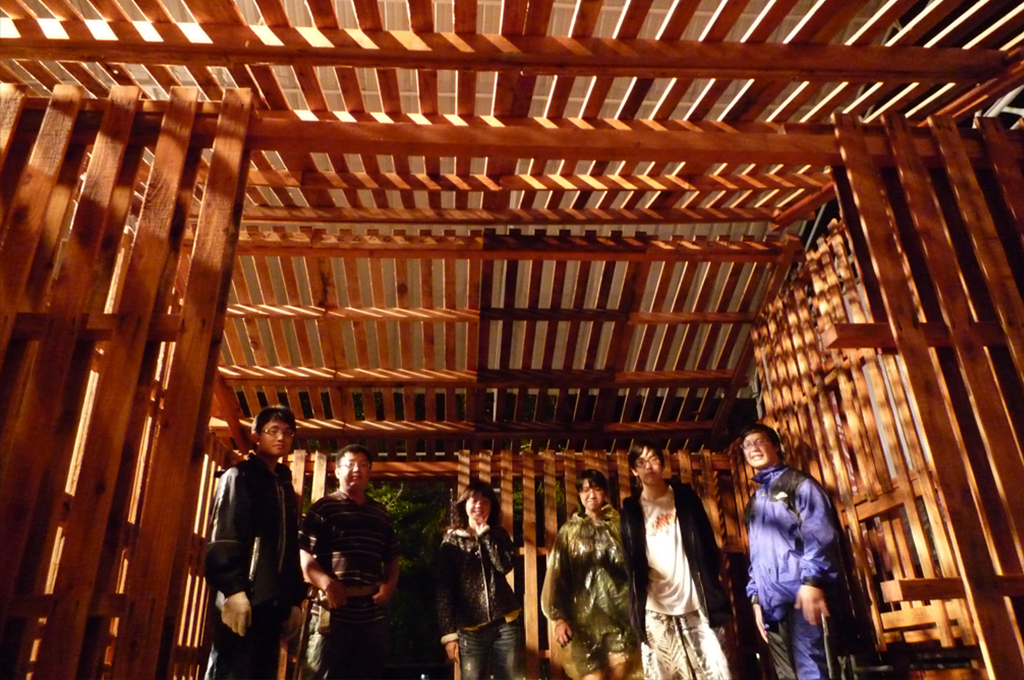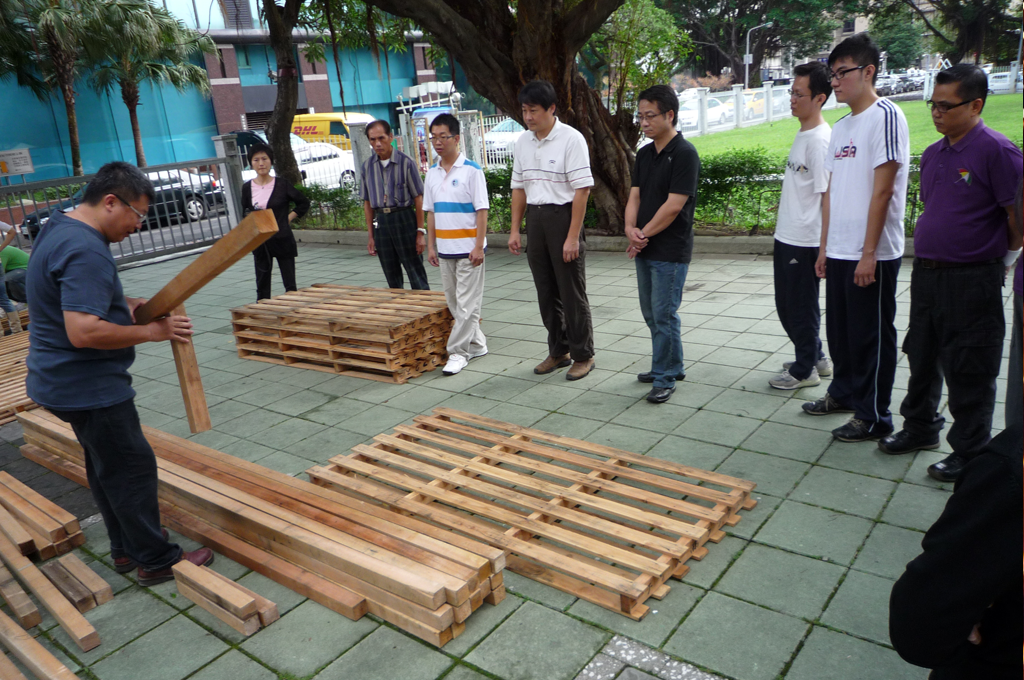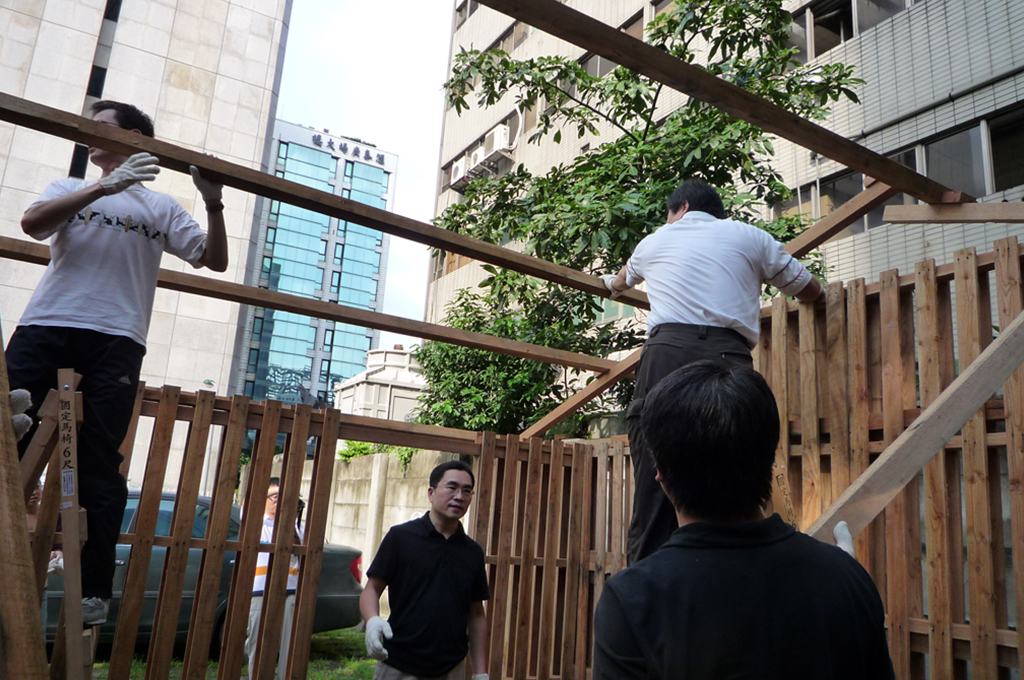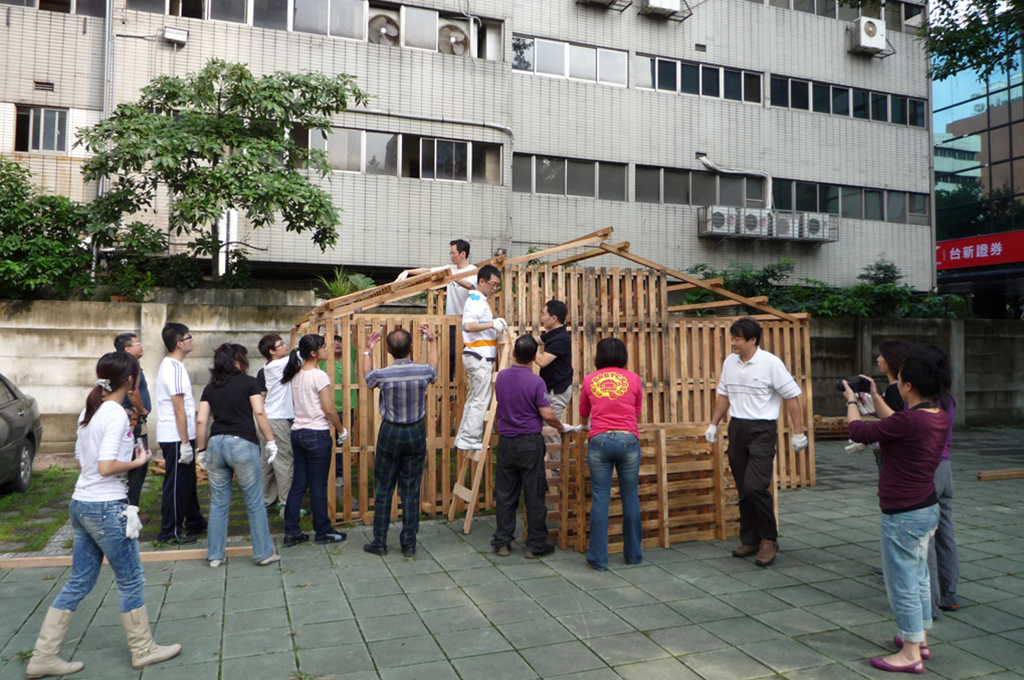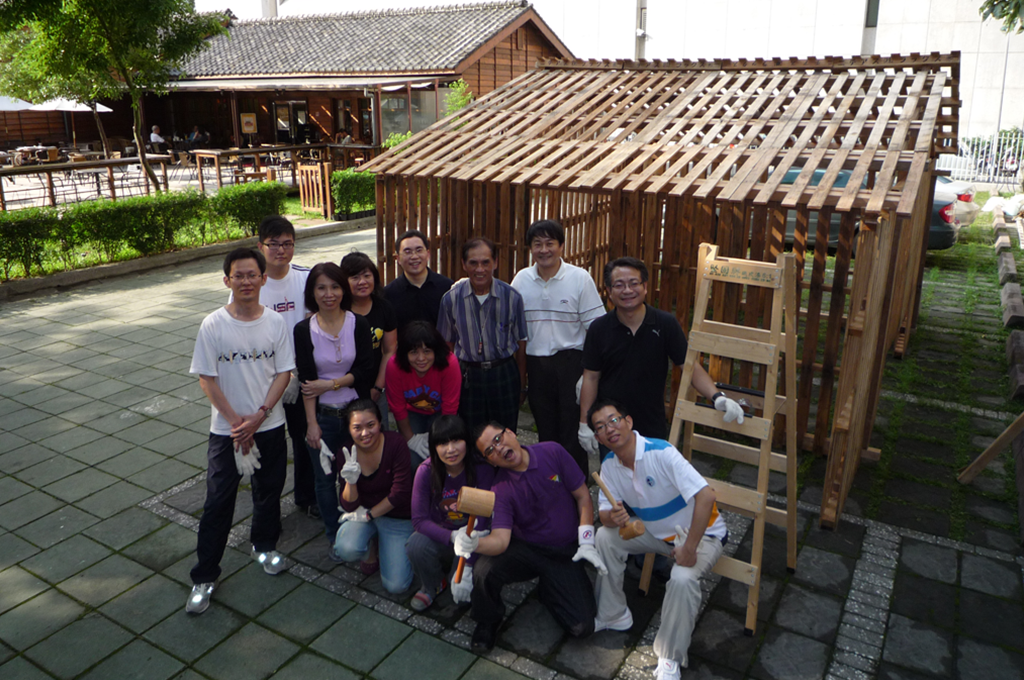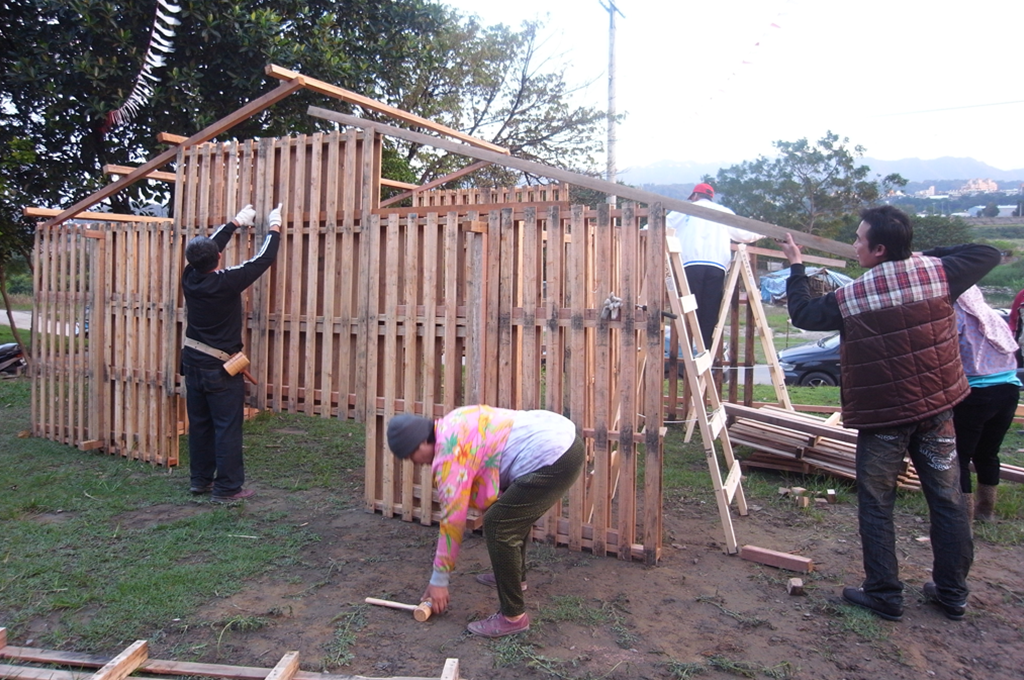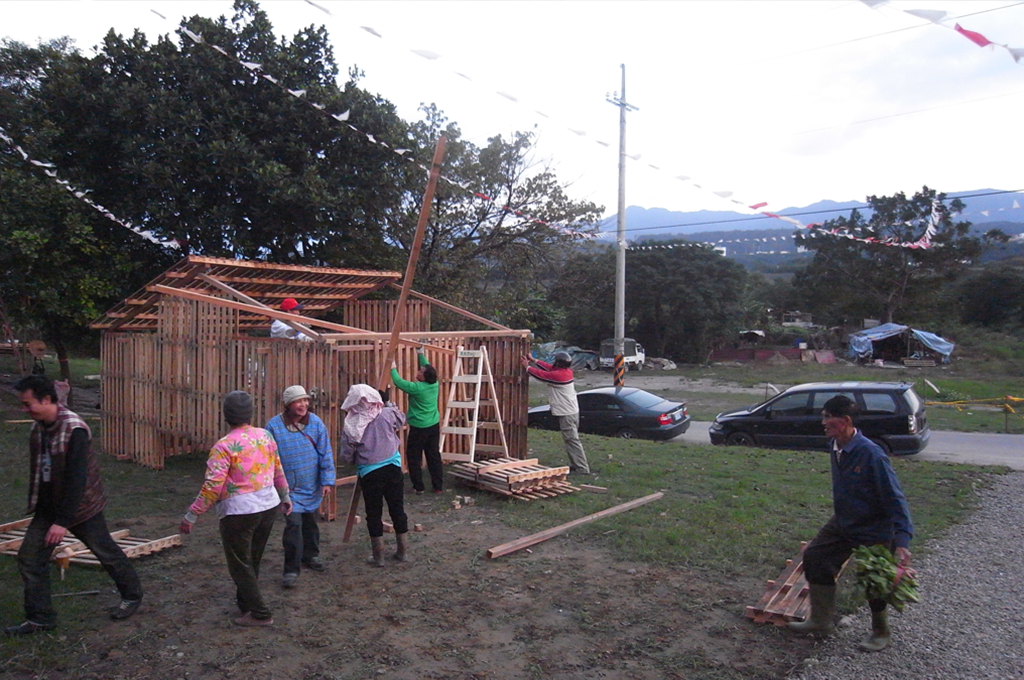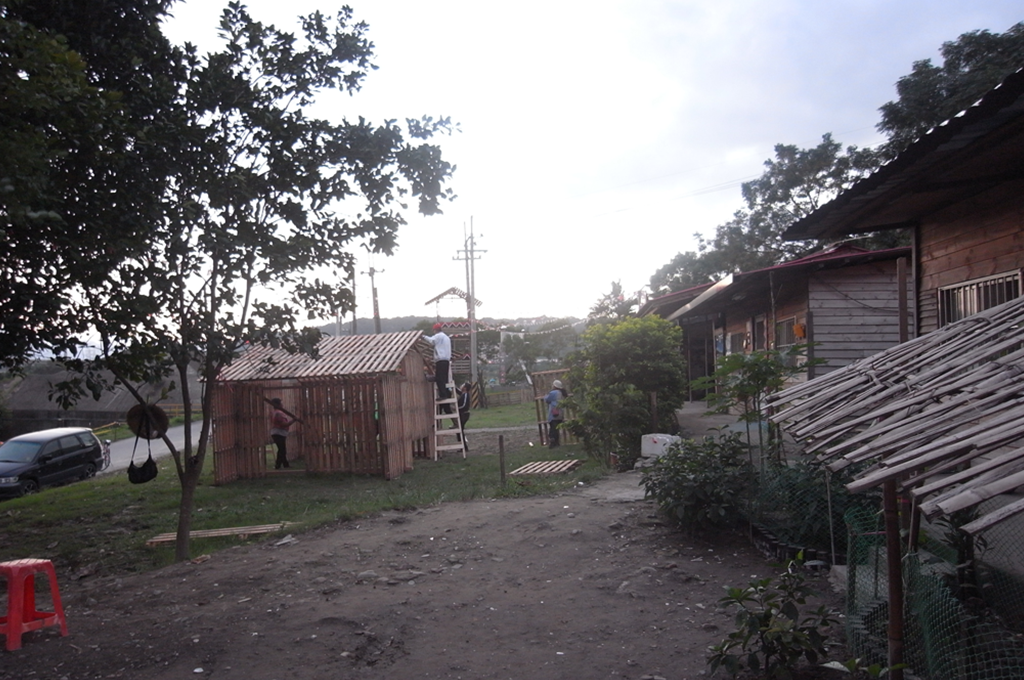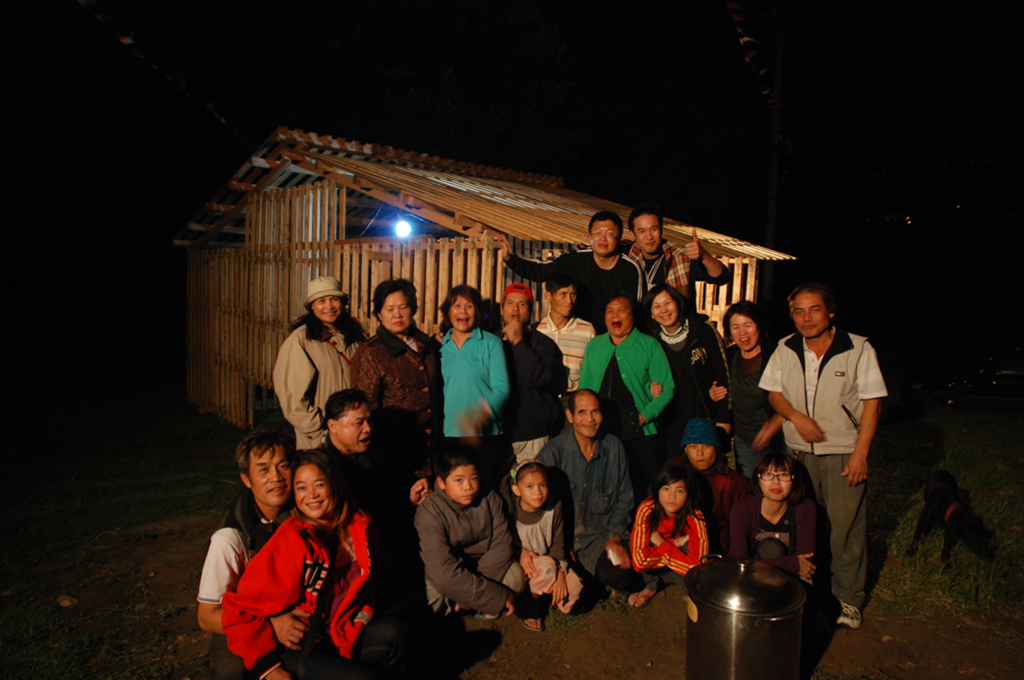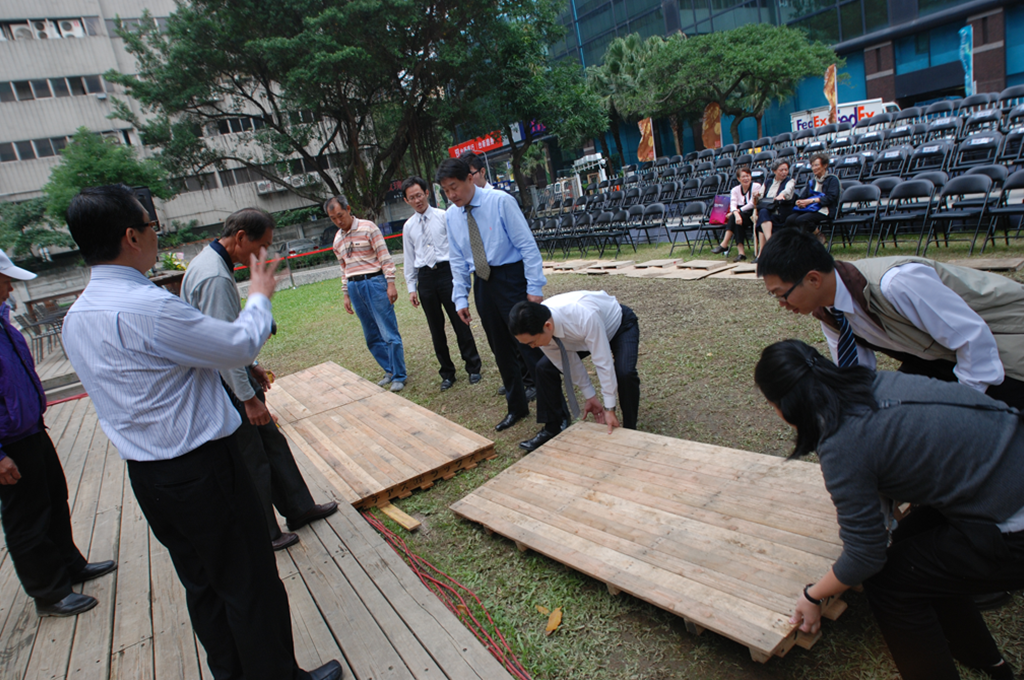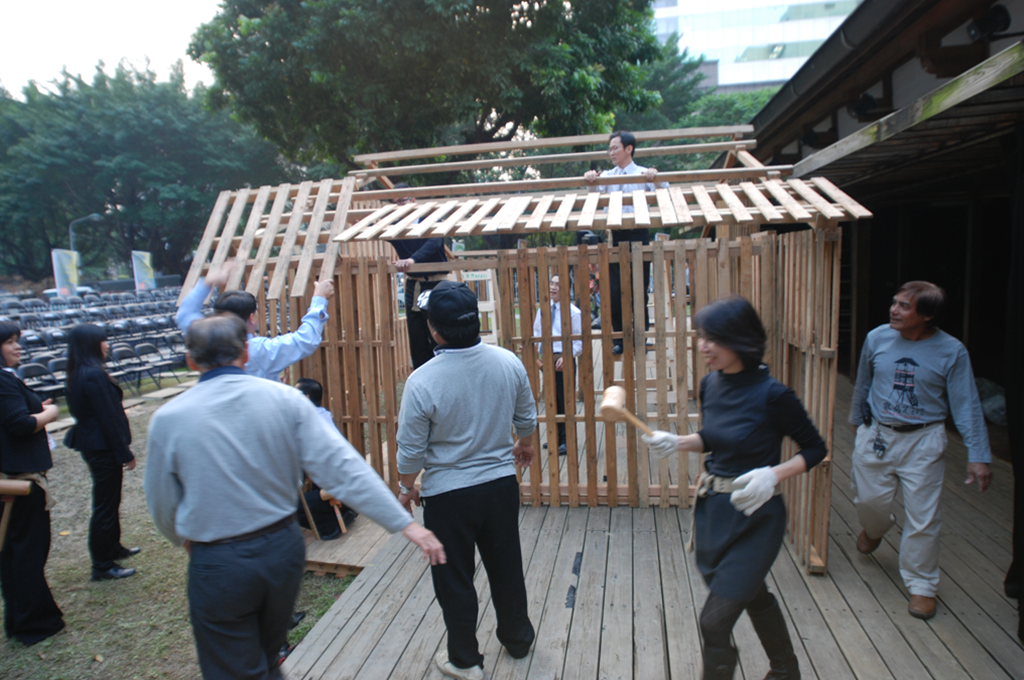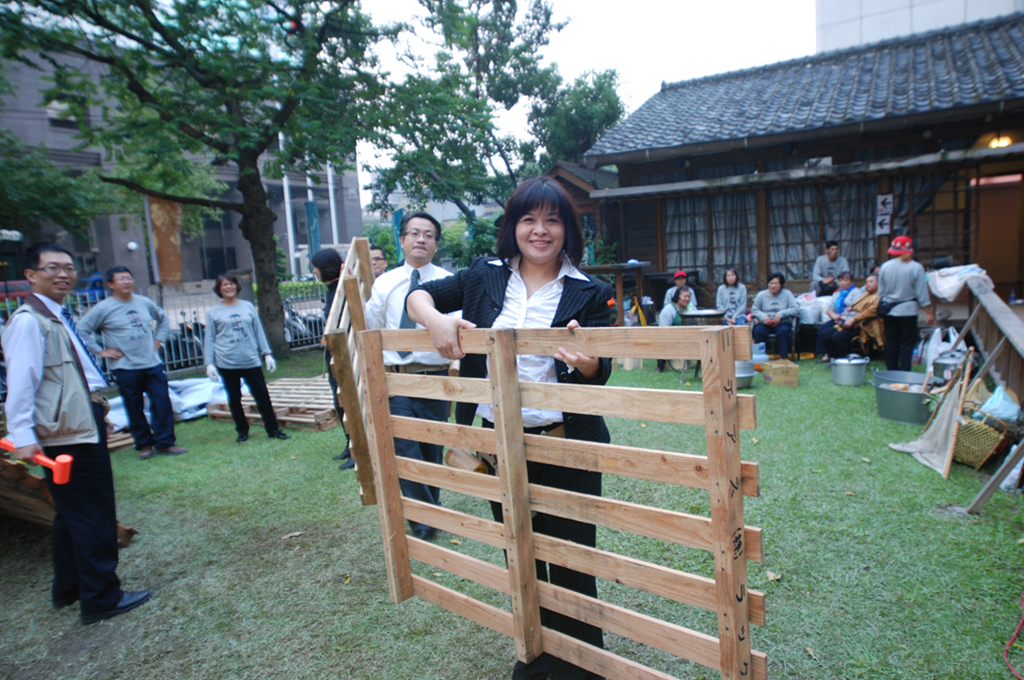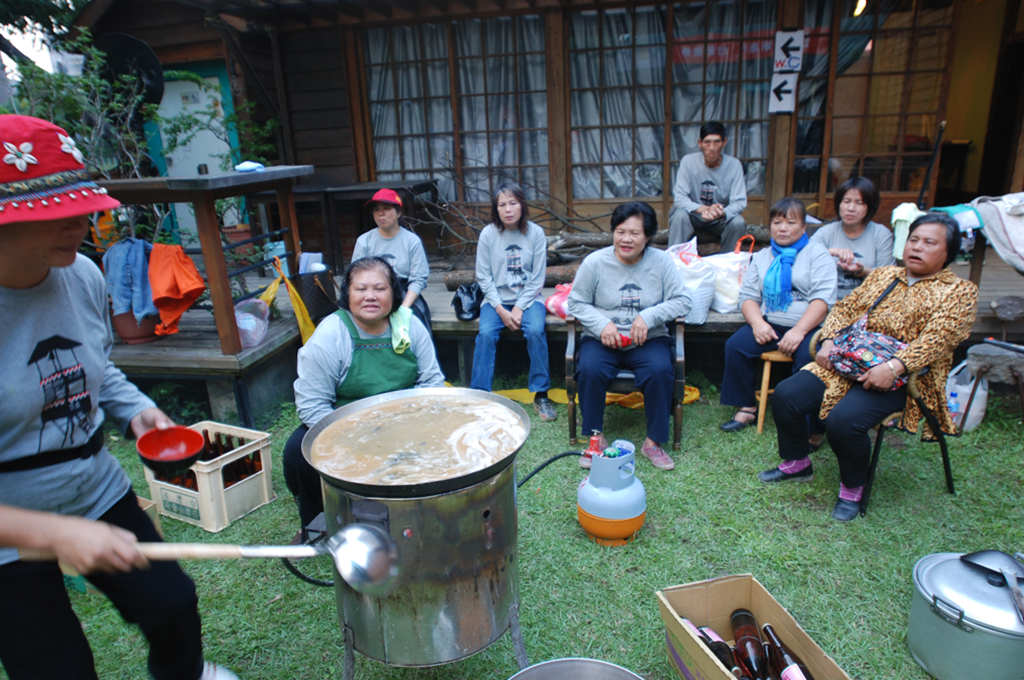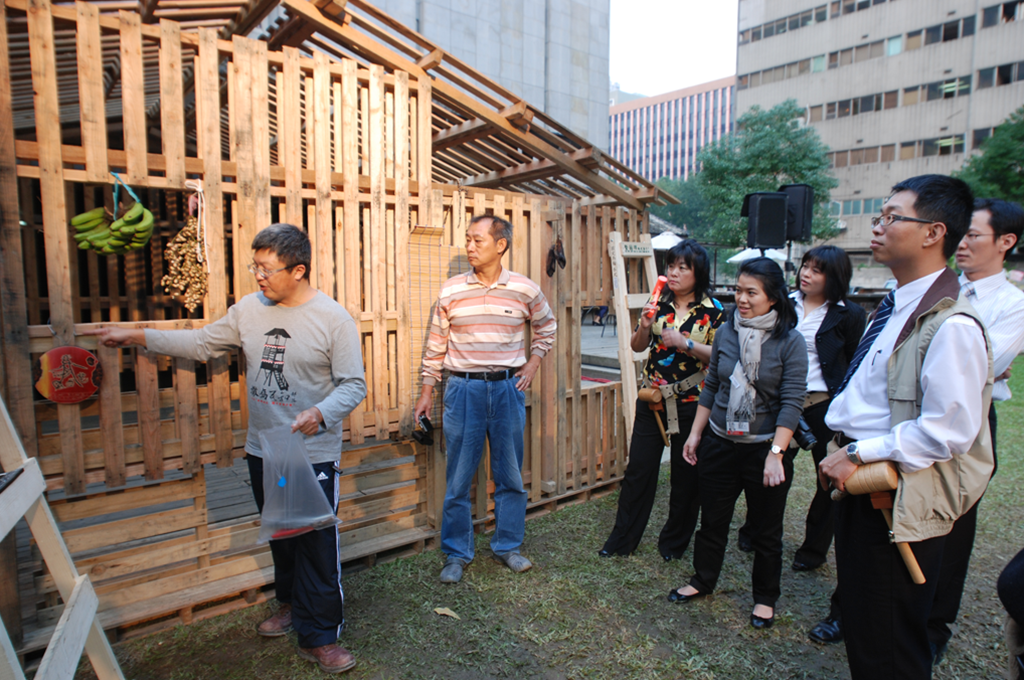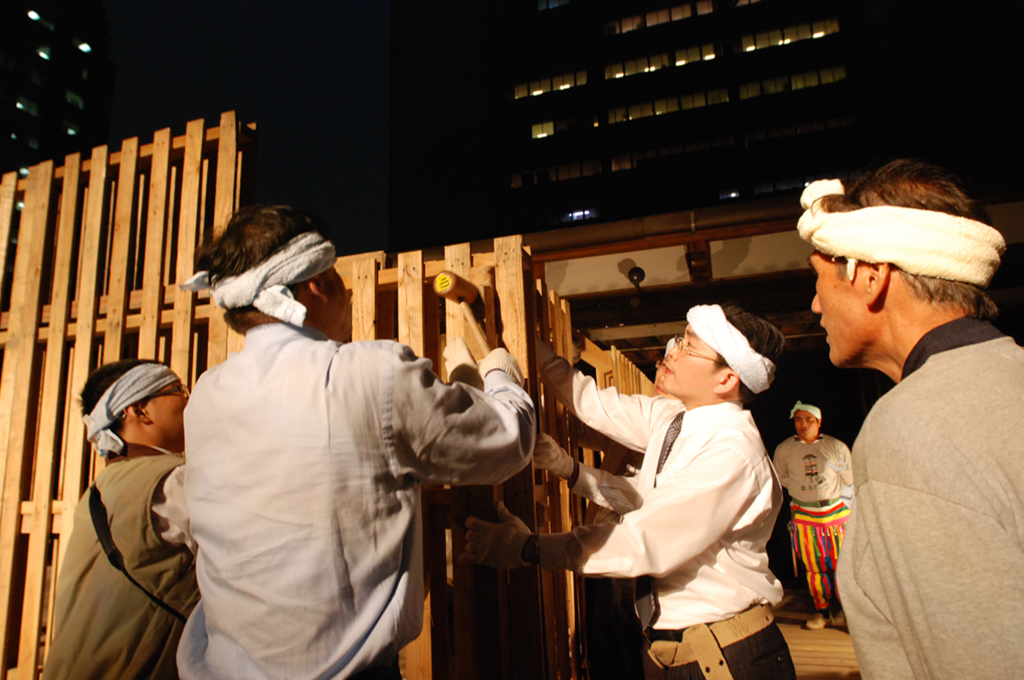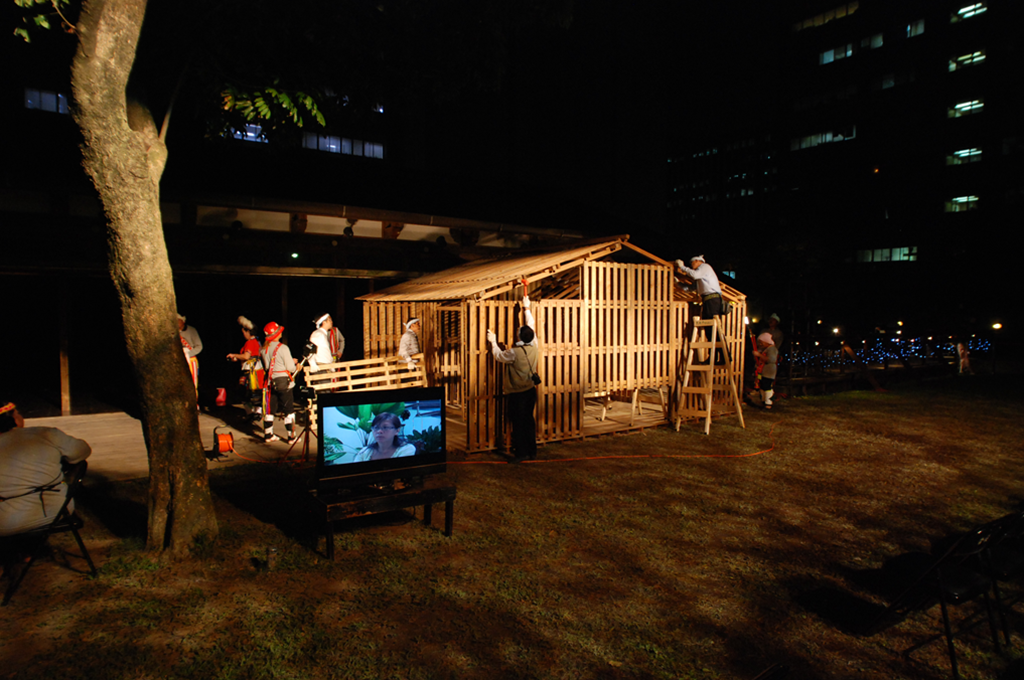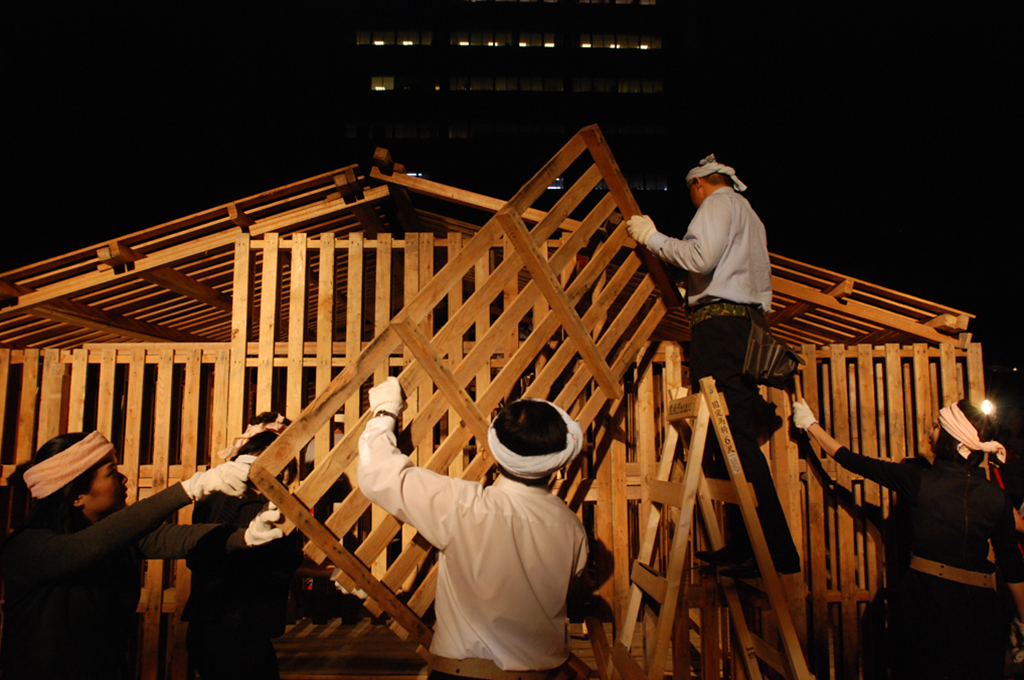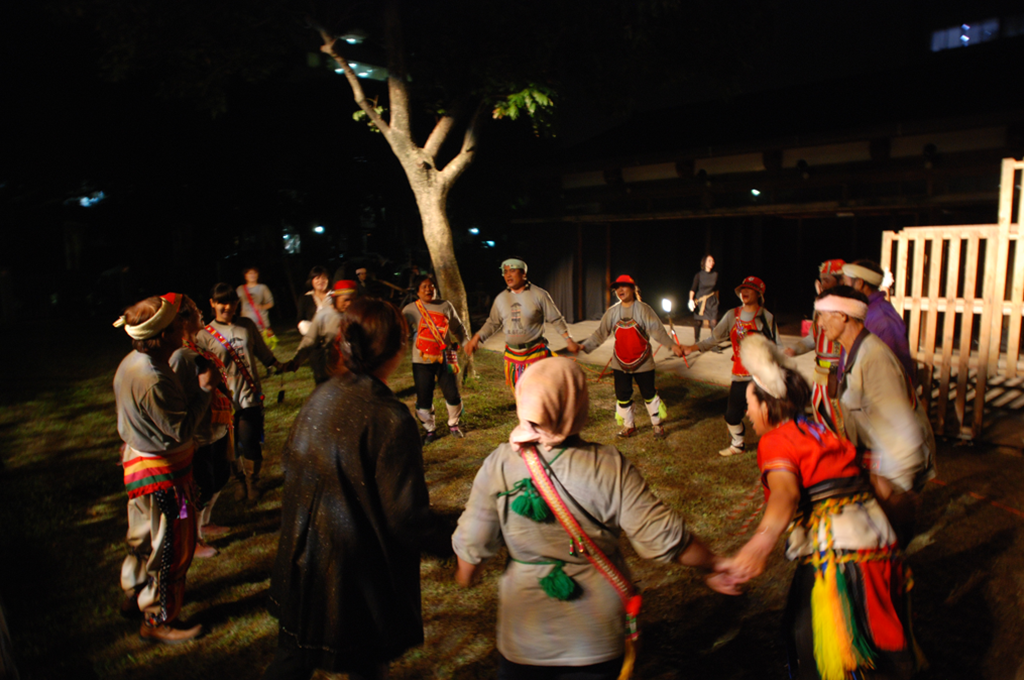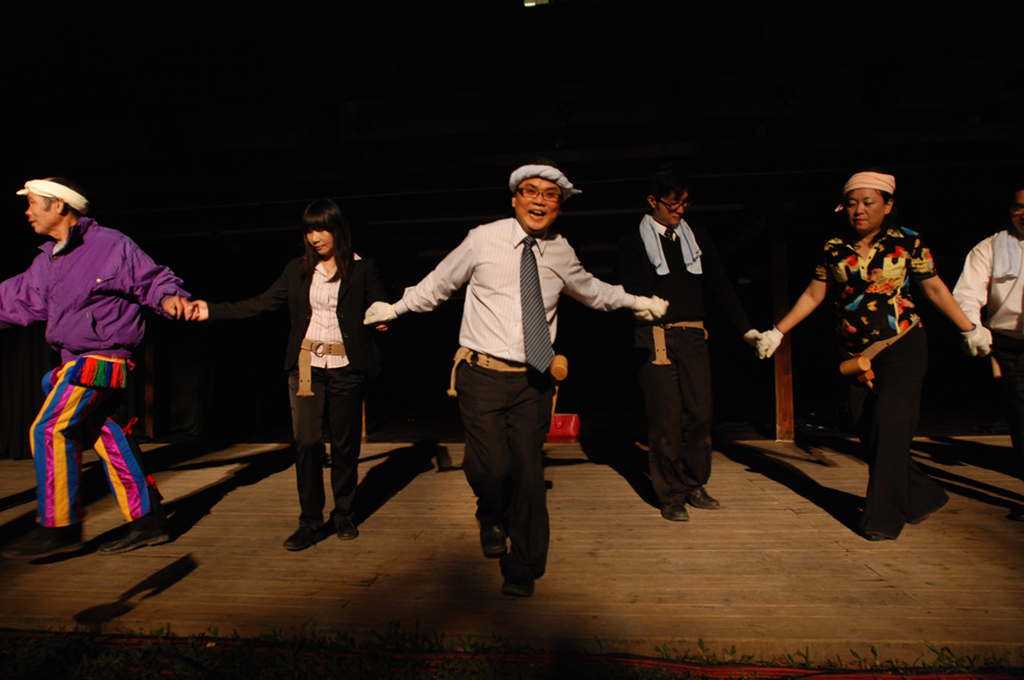建屋:一種社會契約的實踐
Building Homes: Realizing a Social Contract
演出/創作屬性:表演藝術
藝術家:許淑真+盧建銘
演出者:許淑真、盧建銘、撒烏瓦知部落、台新金控保代員工
使用媒材:數位影像、快速勞動建屋表演,現場表演
時間長度:25分鐘版;2小時版
Artists: Su-chen Hsu + Chien-ming Lu
Performers: Su-chen Hsu, Chien-ming Lu, Sa’owac Village, Insurance agents of Taishin Financial Holdings
Media: Digital images, fast-labor house-building performance. Live performance.
Length: 25 minutes; 2 hours
參演藝術節:第五屆蔡瑞月舞蹈節:回到大自然的家
演出日期:2010.11.5~11.9
開幕日期:2010.11.5
演出地點:蔡瑞月舞蹈社,台北市
主辦單位:財團法人臺北市蔡瑞月文化基金會
Participated art festival: Tsai Jui-Yueh Dance Festival: Back to Nature, Our Home
Dates: November 5 to November 9, 2010
Opening date: November 5, 2010
Venue: Tasi Jui-yueh Dance Research Institute, Taipei
Organizer: Tasi Jui-yueh Dance Foundation
社會契約的當代觀念與創作內涵
盧梭的民約論(Du Contrat Social,社會契約)啟發了法國大革命時的人民,瞭解廢除了君權神授的貴族/教廷之後,可以建立取代他們的共和國(la République),掌管國家的眾官僚們,政治權能來自於人權天賦的眾人,這就是社會契約的基礎及精神。砍去兩千多個頭顱之後,並不是要換上另一批人頭而已,而是要從人民中,建立具有自由平等博愛的社會。
但是這樣的創見在經歷了兩個多世紀的各種運作之後,可以發現國家官僚仍然只與部分社會力量建立緊密的關係,藉眾人之名,背叛了建立社會契約的倫理;因為,相對於每一個個人的渺小,國家及眾人是如此的龐大。發展至今,結合全球化資本主義體系的國家,將所有現存的物質及非物質文化,全部納入到資本主義的系統裡。
當代社會中的許多人,生命中有越來越多的壓迫,竟然常常源自於國家社會。特別是國家幾乎全面的接收了社會結構,將之納入到國家主義當中,使得原有多樣多元的社區/社群(la commune)社會性涵構(contexture),漸漸崩解粉碎。
當今,連原本是基本生存權的居住/住居,竟然也成為生命中最沉重的壓迫工具。由於看到撒烏瓦知部落在社會及國家的雙重壓迫之下,能夠藉著社會支撐和傳統共同建屋習俗文化的力量,重建自己的家園。所以我們將召集社會結構中不同角色的人共同建屋,從微小的社會殘片當中,試圖演練重構當代社會契約的可能想像。
The Contemporary Concept of Social Contract and Artist Statement
Rousseau’s Du Contrat Social (The Social Contract) inspired the people of the French Revolution, allowed them to understand that the people could realize the Republic (la République) to replace the abolished aristocrats and the Church, who once ruled with the divine rights of kings. The fact that the political power of the bureaucracy came from the people, who possessed the natural rights, was the basis and spirit of the social contract. After the beheading of over two thousands people, the society did not seek another group of people to replace the deceased, but to establish a society of freedom, equality and liberty with the people.
However, after such vision has functioned more than two centuries later, one could see that the bureaucratic nation is still forming a close relation with part of the social power, and in the name of the majority, has betrayed the ethics inherent in establishing the social contract. The reason is that, comparing to the insignificance of each individual, the nation and the majority seems incredibly massive. Developing until today, nations that have assimilated global capitalist systems have already incorporated all existing material and non-material cultures into the system of capitalism.
Many people in contemporary society have begun to feel that more and more different forms of oppression in life actually often originate from the national society, especially when the nation almost fully absorbed the social structure and incorporated it into its nationalism, rendering the previously existent diverse contexture of the community (la commune) gradually disintegrated and perished.
As of today, even the right to housing, which should have been a basic right to life, has become the most oppressive instrument in life. Because of seeing how the Sa’owac village could rebuild their home with the power of social support and their traditional culture to co-build houses even under the double oppression of the society and the nation, we would call upon people who play different roles in the social structure to build a home together. We would exercise the possible imagination of reconstructing the contemporary social contract.
相關DVD
重返《建屋》:一種社會契約的實踐
攝錄影:許淑真
後製剪接:林斐真
後製指導:許淑真
©盧建銘 許淑真 2012
A DVD related to the artwork—
Returning to “Building Homes”: Realizing a Social Contract
Photography and videography: Su-chen Hsu
Post-editing: Fei-jen Lin
Post-production instruction: Su-chen Hsu
© Chien-ming Lu, Su-chen Hsu 2012
